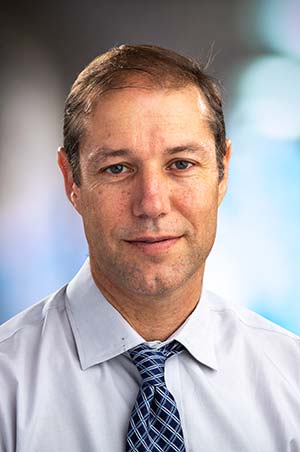William P. Harris, MD
Associate Professor
Clinical Research Division, Fred Hutch
Dr. William P. Harris specializes in caring for people with gastrointestinal cancers, including malignancies of the liver, bile ducts, gallbladder, pancreas, colon, rectum, anus, stomach and esophagus. His research focuses on new targeted therapies, immunotherapies, novel drug combinations and other experimental therapies for patients with liver and biliary-tract cancers. Other areas of expertise include analyzing treatment outcomes data for patients with gastrointestinal cancers, as well as the identification of new treatments for fibrolamellar hepatocellular carcinoma, a rare liver cancer that affects children and young adults.
Other Appointments & Affiliations
Associate Professor, Division of Hematology and Oncology, Department of Medicine, University of WashingtonAssociate Professor
Division of Hematology and Oncology, Department of Medicine, University of Washington
Education
BS, Brown University, Providence, RI
MD, Columbia University, New York, NY
Residency: University of Washington, Seattle, WA
Fellowship: UWMC and Fred Hutchinson Cancer Research Center, Seattle, WA
Other notable training: Post-sophomore Fellowship in Pathology, University of Minnesota Medical Center
Research Interests
Dr. Harris is involved in several ongoing investigations of new therapeutics for the treatment of gastrointestinal malignancies. His main current focus of investigation involves the study of new drugs such as targeted therapy and/or immunotherapy, the study of novel combinations of drugs, or local interventions in combination with experimental drug therapies for the treatment of hepatocellular carcinoma and biliary tract cancers (including cholangiocarcinoma). These trials include Phase I-III trials. Additional areas of focus include data analysis of outcomes after localized or systemic therapy for gastrointestinal malignancies, as well as identification of new treatments for fibrolamellar hepatocellular carcinoma, a rare disease affecting children and young adults.
